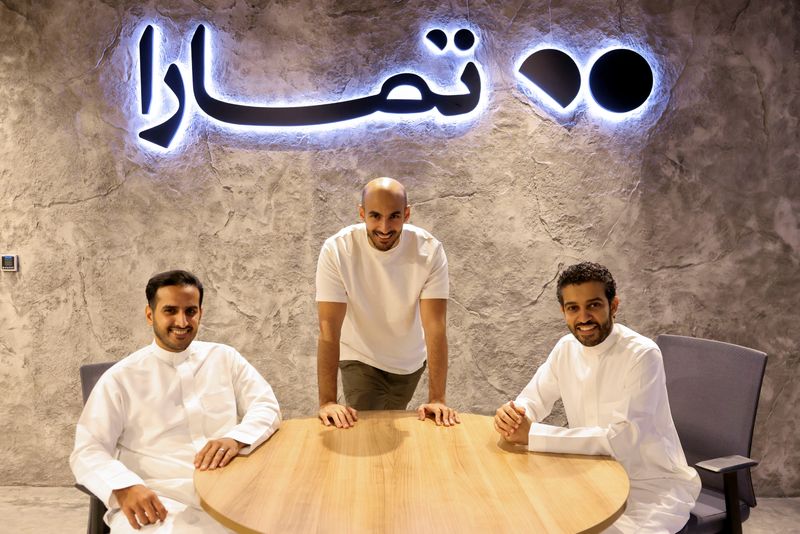By Hadeel Al Sayegh
DUBAI (Reuters) - Gulf buy now, pay later (BNPL) firm Tamara said on Monday it raised $100 million in a second round of fundraising from investors including Sanabil Investments, which is owned by Saudi Arabia's sovereign wealth fund PIF.
The series 'B' funding would support the Saudi-based startup to expand into new markets, and introduce new services and products. It did not specify which markets.
"We believe the region has a different situation today than globally. The region is thriving with high oil prices," Chief Executive Abdulmajeed Alsukhan told Reuters.
"We want to make sure our customers find the right products that suit them and find amazing deals."
Tamara, which has over 3 million active shoppers, is one of the Gulf Arab region's largest BNPL providers and competes with companies including Dubai-based Tabby.
Demand for BNPL, which allow consumers to order and take a product without immediately paying, has risen in recent years, driven by an increase in online shopping.
The provider pays the merchant immediately and is paid back by the consumer in installments, typically only earning revenue from transaction fees charged to the merchant.
Tamara was founded in 2020 by Saudi entrepreneurs Abdulmajeed Alsukhan, Turki Bin Zarah and Abdulmohsen Albabtain.
It has so far raised $215 million in capital and has partnered with firms including IKEA and Saudi retailer Jarir, in addition to e-commerce platforms SHEIN and NAMSHI.
Other investors that participated in its latest round included global investment manager Coatue, Gulf technology investor Shurooq Partners, co-investment vehicle Endeavor Catalyst and existing investor Checkout.com, a global payment solutions firm.
Tamara is also in negotiations with local, regional and international lenders for debt financing, a new foray for banks in the region that are still learning about the nascent sector, Alsukhan said.
It expects to reach profitability next year, with plans for a listing in Saudi Arabia in the future, which may include a second listing in other markets such as the United Kingdom, he said.

The BNPL business model emerged in times of very low interest rates, but the prospect of sustained increases to interest rates could spell trouble for the sector.
"We believe that the interest rate as of today is still manageable," Alsukhan said. "However, there is no doubt that in such a business that if interest rates goes way beyond where it is today, then it's definitely problematic to all."